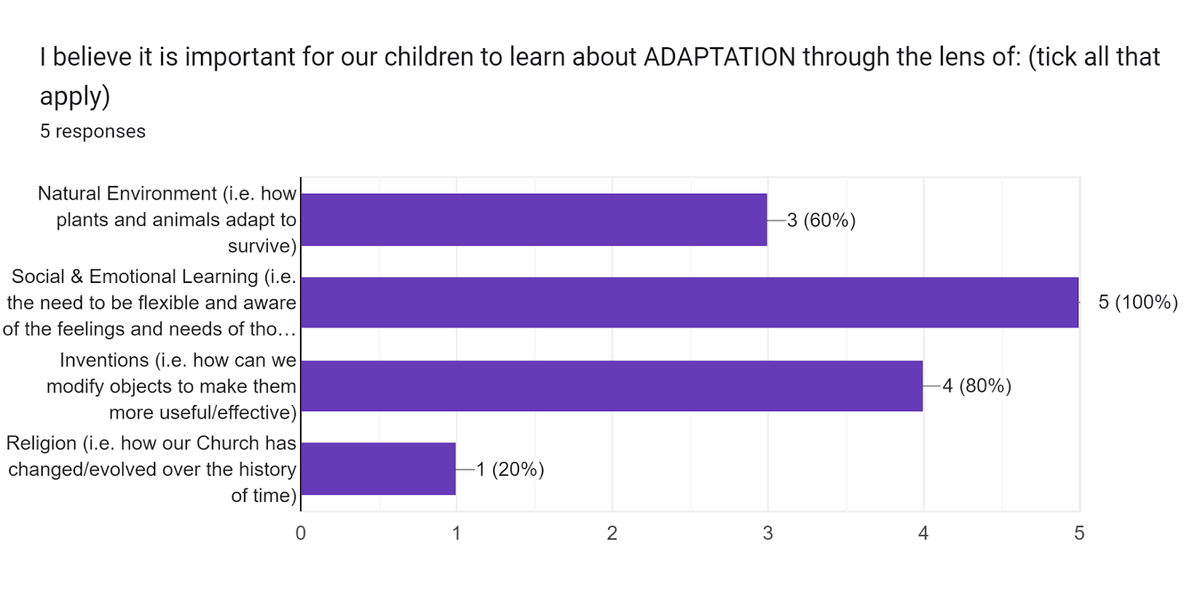Semester 2 Inquiry Units

As per our school’s Curriculum Plan and Policy, the core Curriculum Areas of Religious Education, English and Mathematics are complimented by the delivery of an integrated unit of work using an inquiry approach.
Each year level’s integrated Inquiry Units will encompass the General Capabilities as well as several discipline-based curriculum areas from the Victorian Curriculum. In Semester 2 these curriculum areas include Science (Biological and Earth Space Sciences), Health and Design Technologies.
This semester, our whole school Inquiry concept is: ADAPTATION
In order to plan engaging learning experiences and meaningful units of work, staff commenced the planning process last term. The voice of students, parents and staff were considered prior to more in-depth planning of our Inquiry units.
Thank you to the parents who responded to our short survey about ADAPTATION.
Some parent responses included:
I think ADAPTATION means…
- Being able to deal and adjust to different situations/scenarios
- Things don’t always go the way you want them to. You need to be able to accept and adjust to situations and this means you need to flexible in approaching a task or an issue.
- Learning to change based on your surrounding for the best outcome for you
- The ability that living things gave to change and evolve to adapt to a habitat for survival reasons
Other comments/wonderings/feedback?
- I think this topic is a good starting point to explore and discuss emotional intelligence
- Learning to adapt, and how change can be good for you and how you can make the best of what could be seen as bad is the most important lesson in life. It’s easy to talk about evolution, but immediate change is hard to deal with. Learnings need to not only be about others and the world, but also about the self and understanding that adaptation is not an immediate thing and everything takes time. Rome was not built in a day… yes… but Rome took centuries to build. Wars take years, and even when they’re over there’s years of rebuilding. Lessons take years, and growth is always happening. It’s important to see something that may be bad (and so easy to ruminate on the negative), but if you change your view and try and see positive then amazing things can happen.
“Student Voice” was collated by classroom teachers, specifically through class discussions about the concept of IMPACT and explicitly planned activities where students shared their prior knowledge of various topics that may be covered in our units.
Here is a snapshot of each level’s Inquiry units for Semester 2 2024:
Prep | Title: What is the impact? | ||
Compelling Questions:
| Key Topics & Understandings:
| Understandings:
| |
Year 1/2 | Title: Surviving and Thriving | ||
Compelling Questions:
| Key Topics & Understandings:
| Understandings:
| |
Year 3/4 | Title: Amazing Adaptations | ||
Compelling Questions:
| Key Topics & Understandings:
| Understandings:
| |
Year 5/6 | Title: Survival Secrets: Exploring Adaptations in Nature and Beyond | ||
Compelling Questions:
| Key Topics & Understandings:
| Understandings:
| |

